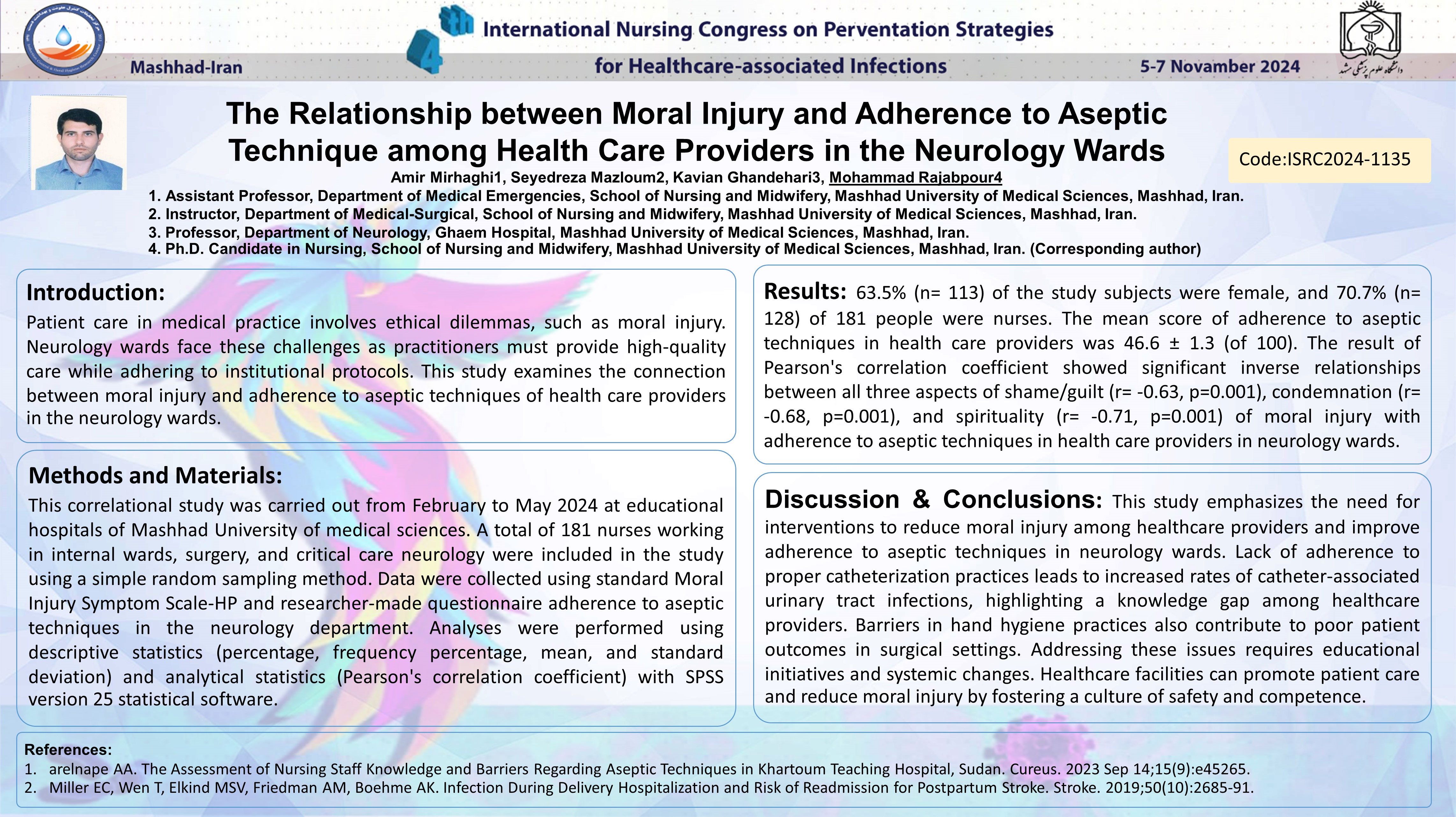ارتباط بین آسیب اخلاقی و تبعیت از تکنیک های آسپتیک در مراقبین سلامت شاغل در بخشهای اعصاب
کد: G-1135
نویسندگان: امیر میرحقی, سیدرضا مظلوم, کاویان قندهاری, محمد رجب پور © ℗
زمان بندی: زمان بندی نشده!
دانلود: دانلود پوستر
خلاصه مقاله:
خلاصه مقاله
Background: Patient care in medical practice involves ethical dilemmas, such as moral injury. Neurology wards face these challenges as practitioners must provide high-quality care while adhering to institutional protocols. This study examines the connection between moral injury and adherence to aseptic techniques of health care providers in the neurology wards. Methods: This correlational study was carried out from February to May 2024 at educational hospitals of Mashhad University of medical sciences. A total of 181 nurses working in internal wards, surgery, and critical care neurology were included in the study using a simple random sampling method. Data were collected using standard Moral Injury Symptom Scale-HP and researcher-made questionnaire adherence to aseptic techniques in the neurology department. Analyses were performed using descriptive statistics (percentage, frequency percentage, mean, and standard deviation) and analytical statistics (Pearson's correlation coefficient) with SPSS version 25 statistical software. Results: 63.5% (n= 113) of the study subjects were female, and 70.7% (n= 128) of 181 people were nurses. The mean score of adherence to aseptic techniques in health care providers was 46.6 ± 1.3 (of 100). The result of Pearson's correlation coefficient showed significant inverse relationships between all three aspects of shame/guilt (r= -0.63, p=0.001), condemnation (r= -0.68, p=0.001), and spirituality (r= -0.71, p=0.001) of moral injury with adherence to aseptic techniques in health care providers in neurology wards. Conclusion: This study emphasizes the need for interventions to reduce moral injury among healthcare providers and improve adherence to aseptic techniques in neurology wards. Lack of adherence to proper catheterization practices leads to increased rates of catheter-associated urinary tract infections (CAUTI), highlighting a knowledge gap among healthcare providers. Barriers in hand hygiene practices also contribute to poor patient outcomes in surgical settings. Addressing these issues requires educational initiatives and systemic changes. Healthcare facilities can promote patient care and reduce moral injury by fostering a culture of safety and competence.
کلمات کلیدی
Moral Injury, Adherence, Aseptic Technique, Health Care Providers, Neurology.
